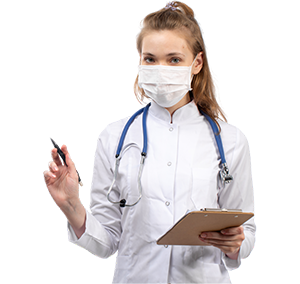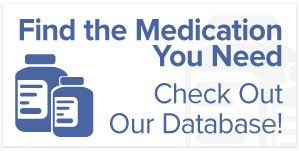Chemotherapy is designed to treat various types of cancer. Cancer cells grow faster than normal healthy cells, and the role of chemo drugs is to stop them from growing. But as chemo drugs travel the whole body, they often affect normal and fast-growing healthy cells. The damage these drugs cause to healthy cells results in side effects.
In today’s post, we’ll walk you through the potential side effects of chemotherapy and how you can manage them by enrolling in our free medication programs. RX Helper offers prescription assistance programs for the uninsured and underinsured.
Common Side-Effects of Chemotherapy
The normal fast-growing cells that are damaged by chemo drugs are:
- Hair follicles
- Digestive tract, reproductive system, and mouth cells
- Blood-forming cells present in the bone marrow

Sometimes, chemo drugs can also damage kidneys, heart, lungs, nervous system, and bladder cells. So, the common side effects include:
- Hair loss: It occurs after several weeks of chemo, but you may see rapid hair loss within one to two months of chemotherapy.
- Pain: Chemo drugs can cause severe pain, like headaches, stomach pain, muscle pain, and nerve damage.
- Fatigue: Even if you get adequate sleep, you still feel tired. It is a common side-effect of chemo.
- Mouth sores: As chemotherapy damages mouth cells, it can result in painful sores. This condition is known as mucositis. It can happen 5 to nearly 14 days after the cancer treatment.
- Diarrhea: Chemo drugs can lead to watery and loose bowel movements. However, treating it is crucial to avoid dehydration and losing too much body fluid.
- Vomits and Nausea: Once you undergo chemotherapy, you will likely experience nausea and vomiting. How often you experience nausea and vomiting depends on the specific type of chemo drugs and dosage.
- Nervous System Damage: Some chemo drugs can damage your nerves resulting in symptoms like a tingling sensation, burning, loss of balance, trembling, shaking, stiff neck, achy muscles, clumsy, and problems with walking, hearing, and seeing.
- Reproductive problems: Chemo drugs can negatively impact your fertility. It can become challenging for women after chemotherapy to conceive or carry a pregnancy.
- Loss of Appetite: Chemotherapy can curb your appetite. You may not feel hungry or full very fast after eating only a small portion of your food.
Ways to Manage the Common Side-Effects of Chemotherapy
Though side effects can be distressful, they can be managed. Your healthcare professional may start by determining the cause of the problem. They may either change the medicine or your treatment schedule. Furthermore, they may also develop a drug combination for you to lower the side effects.
At Rx Helper, we understand that cancer treatment is costly. Chemo drugs and medication to manage side effects can cripple you financially, especially if you are underinsured or uninsured. The treatment may take years, but coping with the expense is difficult unless you enroll with us.
RX Helper is a patient prescription assistance company. We strive to make access to medication easy for people with poor financial health through our free medication programs. Join our program today and get back on the path to a speedy recovery and a cancer-free life. Click to get started now.



